Certification Levels, Accreditation & earning Potential
Understanding Massage Certification Levels
Massage therapy is a deeply rewarding field that offers many opportunities for practitioners to help others through touch. However, the path to becoming a qualified sports massage or soft tissue therapist involves more than just learning techniques — it also requires meeting certain education and certification standards.
In the UK, therapists progress through different certification levels, each of which provides a deeper understanding of anatomy, physiology, and therapeutic techniques. These qualifications are crucial for ensuring that practitioners have the knowledge and skills to perform massage safely and effectively when working with athletes, active individuals, and anyone with soft tissue injuries or musculoskeletal conditions.
Below, we explore the different levels of certification — Levels 3, 4, and 5 — and discuss the potential career opportunities and salaries that therapists can expect at each stage. At NLSSM, we offer a Level 5, the highest qualification. The good news is that you do not need to complete any Levels prior to be eligible to join – yep, that means you can come straight onto our course as a beginner!
Level 3 QUALIFICATION
A Level 3 qualification in Sports Massage and Soft Tissue Therapy is the entry-level qualification required to practice as a sports massage therapist in the UK.
It focuses on basic sports massage techniques, injury prevention, and rehabilitation. This level is designed for those who want to offer massage therapy to a broad range of clients with soft tissue issues.
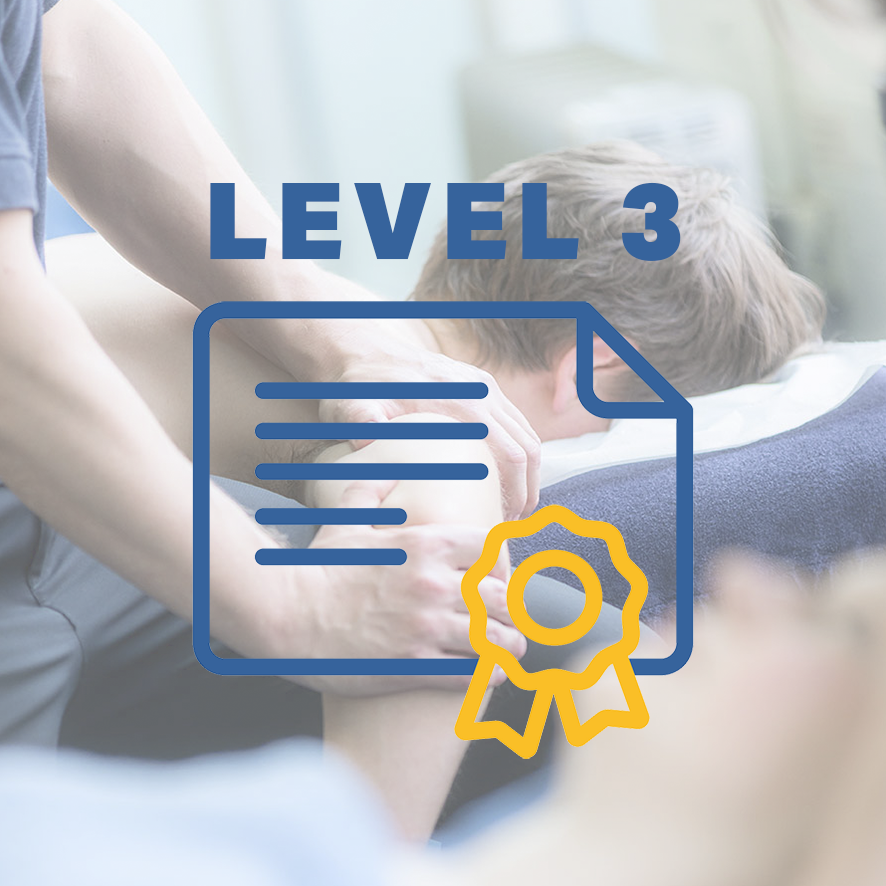
Key Skills & Knowledge
- Basic anatomy and physiology
- Techniques for injury prevention and recovery
- Understanding common musculoskeletal injuries
- Application of soft tissue techniques (e.g., Swedish massage, effleurage, petrissage)
- Client assessment and treatment plans for common injuries
- Practical experience in delivering effective sports massage
Career Opportunities
- Sports Massage Therapist (working in gyms, sports clubs, fitness centers)
- Freelance massage therapist (offering treatments for athletes and active clients)
- Sports event massage therapist (working at marathons, races, competitions)
- Spa or wellness center massage therapist (with a focus on recovery and relaxation)
Expected Earnings
- Hourly rate: £25 - £45 per hour (depending on location and experience)
- Annual salary: £18,000 - £25,000 for full-time employment
- Freelance earnings: As a self-employed therapist, earnings can vary significantly based on the number of clients and location. A busy therapist may earn upwards of £30,000+ annually, especially if working in high-demand areas or with sports teams.
Level 4 QUALIFICATION
Level 4 is an advanced qualification that builds on the skills learned at Level 3. It focuses on more complex soft tissue techniques and a deeper understanding of the body’s musculoskeletal system.
This level is designed for therapists who want to work with more severe injuries and offer a greater depth of care in rehabilitation and recovery.
Do you already hold a Level 4 qualification in massage therapy? Upgrade to a Level 5 with our Bridging Program!
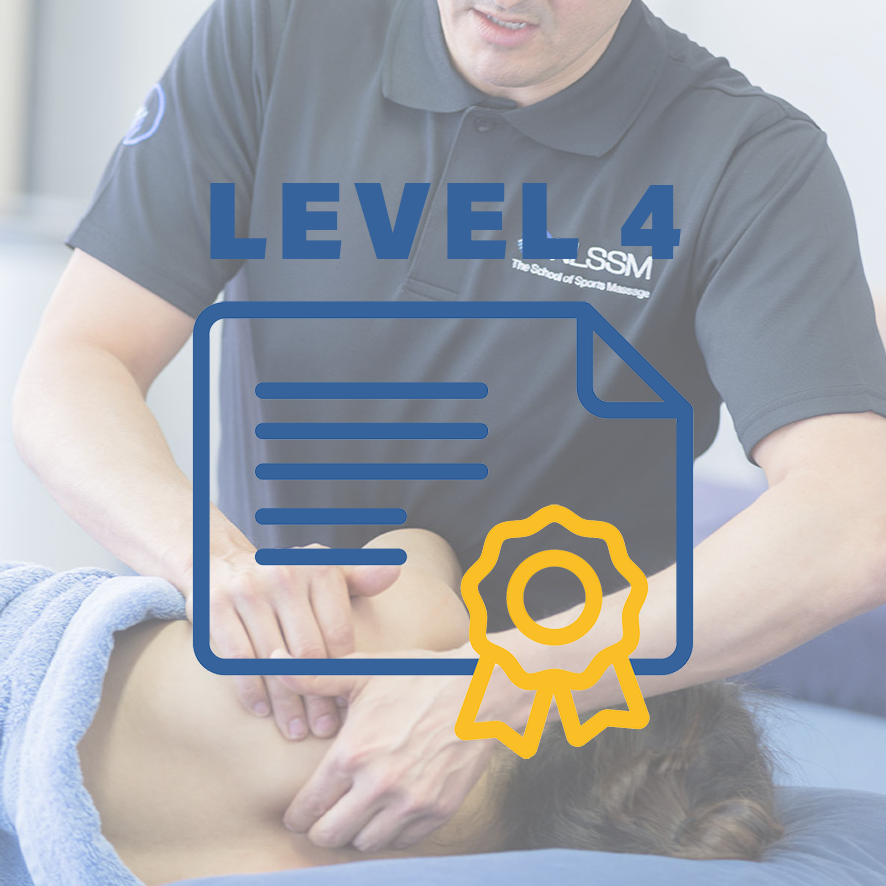
Key Skills & Knowledge
- Advanced massage techniques, including deep tissue and trigger point therapy
- In-depth knowledge of musculoskeletal anatomy and pathology
- Injury assessment and diagnosis
- Rehabilitation strategies for soft tissue injuries
- Use of sports-specific treatments and post-event care
- Advanced assessment tools such as posture analysis and movement screening
Career Opportunities
- Advanced Sports Massage Therapist (working with athletes, sports teams, or clinics)
- Soft Tissue Injury Specialist (specializing in injury rehabilitation and recovery)
- Clinic-based massage therapist (working alongside physiotherapists or chiropractors)
- Freelance therapist with a focus on injury recovery and rehabilitation
- Sports therapist or personal trainer with added massage and injury management expertise
Expected Earnings
- Hourly rate: £35 - £55 per hour (depending on location, client base, and experience)
- Annual salary: £24,000 - £30,000 for full-time employment
- Freelance earnings: Self-employed therapists can earn between £35,000 and £45,000 per year, particularly if they work with professional sports teams or high-profile clients. A therapist with Level 4 qualifications can charge higher rates for more specialized treatments.
Level 5 QUALIFICATION
Level 5 is the highest qualification available in sports and remedial soft tissue therapy, and is the Level that we offer at NLSSM! This level is aimed at experienced practitioners who want to specialize in more complex injury management, advanced rehabilitation techniques, and therapeutic modalities.
Level 5 therapists are highly skilled in treating chronic conditions and soft tissue injuries and can often work independently in clinical settings or with professional athletes.
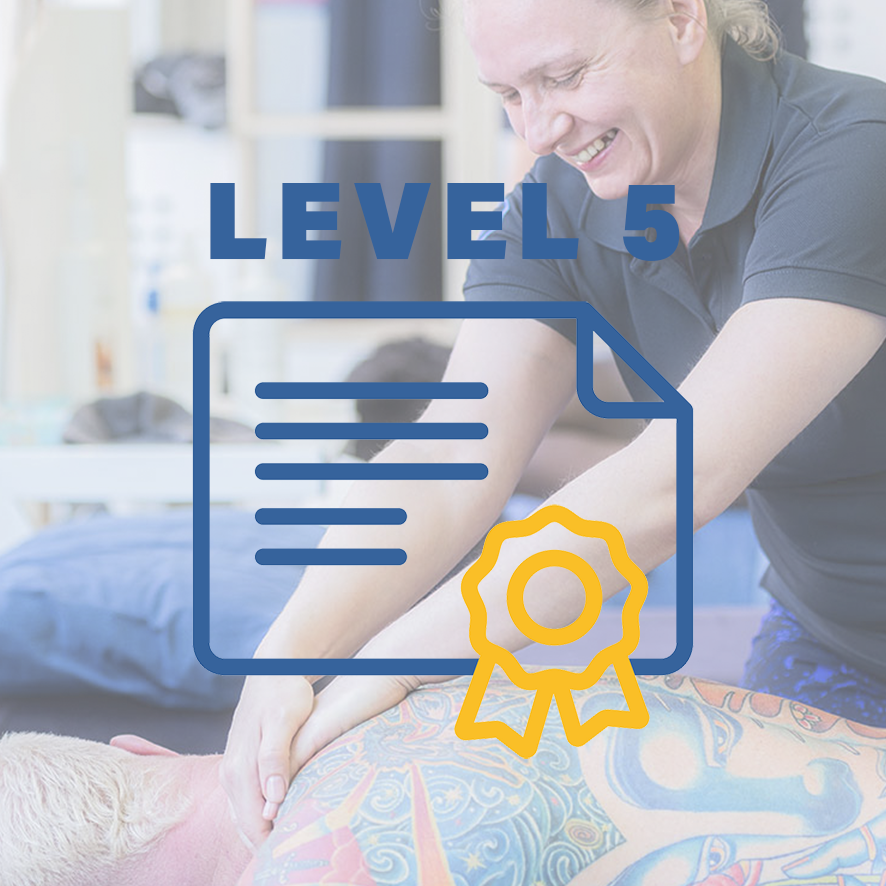
Key Skills & Knowledge
- Advanced soft tissue therapy techniques, including neuromuscular techniques, myofascial release, and deep tissue therapy
- In-depth understanding of musculoskeletal dysfunctions and chronic pain management
- Advanced injury rehabilitation and management for both acute and long-term conditions
- Detailed understanding of sports performance enhancement, injury prevention, and recovery
- Clinical assessment, diagnosis, and development of rehabilitation programs
- Clinical reasoning and the ability to work alongside other healthcare professionals (e.g., physiotherapists, osteopaths)
Career Opportunities
- Senior Soft Tissue Therapist or Clinical Sports Therapist (working in private clinics or multidisciplinary teams)
- Head Sports Therapist for sports teams or athletic organizations
- Remedial Soft Tissue Therapist (working with clients who have long-term musculoskeletal conditions)
- Clinical lead in injury rehabilitation, offering in-depth recovery programs
- Educator or trainer in soft tissue therapy (teaching and mentoring at Level 3 and Level 4)
- Independent clinic owner specializing in advanced sports and remedial therapy
Expected Earnings
- Hourly rate: £50 - £80 per hour (depending on experience, location, and client type)
- Annual salary: £30,000 - £40,000 for full-time employment
- Freelance earnings: Self-employed therapists at Level 5 can expect to earn £40,000+ annually, with high potential for earnings in specialized clinics or as part of elite sports teams. In more affluent areas or high-demand sectors, this can rise to £50,000+.
The Importance of Accredited Courses & Professional Organisations
When pursuing a career in sports massage or soft tissue therapy, it’s essential to ensure that the training courses you undertake are accredited by recognised professional bodies. These accreditations not only ensure the quality of education but also enhance your credibility as a therapist and provide a pathway to employment or self-employment.
NLSSM's Accrediting Organisations & Professional Associations
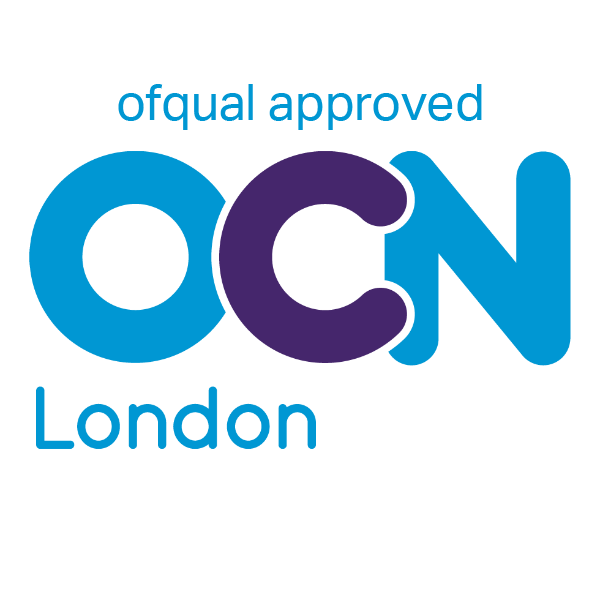
OCN (Open College Network)
Our Level 5 qualification is accredited by OCN, which ensures that we have met rigorous standards of quality and curriculum. OCN is OFQUAL approved and is a respected accreditation body in the UK and offers qualifications that are recognised across the industry.
As well as OCN, we are also approved by the following organisations:
- The Complementary and Natural Healthcare Council (CNHC) – they are an independent UK regulator for complementary healthcare practitioners.
- The Complementary Health Professionals (The CHP) – they are one of the UK’s leading Professional Associations, serving members since 1994. They offer members a host of specialised services, including access to quality insurance, free entry to their annual conference plus much, much more!
With an NLSSM Level 5 qualification, you are eligible to join the following organisations:
- The Sports Massage Association (The SMA) is a professional organisation launched in 2002 in order to establish and maintain minimum standards for soft tissue therapy training
- The London & Counties Society of Physiologists (The LCSP) were founded in 1919 and they’re the oldest-established and largest organisation of private practitioners of remedial massage and manipulative therapy in the U.K!
- The Complementary Health Professionals (CHP), set up in 1994 actively work with their peers within the profession to support the interests of their members. They are a holistic organization that welcomes a wide range of qualifications such as Reflexology, Aromatherapy, and Reiki.
All organisations that we work with sit on the General Council for Massage Therapies (GCMT) representing massage/soft tissue therapies and setting industry standards.
Why Being Ofqual-regulated Matters:
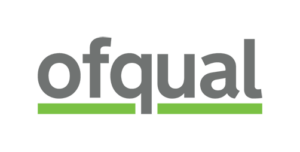 It’s crucial that the courses you choose are Ofqual-regulated. Ofqual (The Office of Qualifications and Examinations Regulation) is a non-ministerial department responsible for ensuring that all qualifications and assessments meet high-quality standards by monitoring awarding organisations, assessments and examinations. They take the necessary action to ensure that the qualifications meet the needs of learners, higher education institutions and employers. Ofqual reports directly to Parliament.
It’s crucial that the courses you choose are Ofqual-regulated. Ofqual (The Office of Qualifications and Examinations Regulation) is a non-ministerial department responsible for ensuring that all qualifications and assessments meet high-quality standards by monitoring awarding organisations, assessments and examinations. They take the necessary action to ensure that the qualifications meet the needs of learners, higher education institutions and employers. Ofqual reports directly to Parliament.
Recognition: Ofqual-regulated qualifications are officially recognised in the UK, providing assurance to employers, clients, and insurers.
Professional Credibility: Being qualified through an Ofqual-regulated programme demonstrates that you meet established industry standards and adhere to best practices in your work.
Insurance & Legal Requirements: Many insurance providers require therapists to have an Ofqual-regulated qualification to ensure that you are adequately trained to work safely with clients. Using an Ofqual-regulated provider also ensures that your training is legally compliant and recognised UK wide
CAREER PATH & GROWTH
Progressing through these levels of certification opens up a range of career opportunities and income potential. Here’s a look at the potential career trajectory:
Starting at Level 3: Therapists can begin working in general sports massage, providing recovery and relaxation treatments for a broad range of clients. This is an ideal starting point for building a client base and gaining hands-on experience in the field.
Advancing to Level 4: Therapists with a Level 4 qualification can take on more advanced clients with complex injuries and offer a broader range of rehabilitation services. This opens doors to more specialized roles, such as working with sports teams or managing injury recovery in clinical settings.
Reaching Level 5: A Level 5 will provide a much more advanced understanding of sports and remedial massage techniques within clinical practice. You will learn how to perform comprehensive assessments, develop individualised treatment plans for complex injuries, and use advanced techniques for recovery and rehabilitation. A Level 5 qualification can lead to roles in high-performance sports settings or specialised clinical environments.
As you progress, your earning potential increases, and you’ll open doors to more specialised, high-paying roles in the growing field of sports therapy.
At NLSSM, we take you from start to finish in one course. This means you do not need to have a Level 3 or 4 qualification prior to joining our Level 5! Find out more about this on our Level 5 Diploma page.
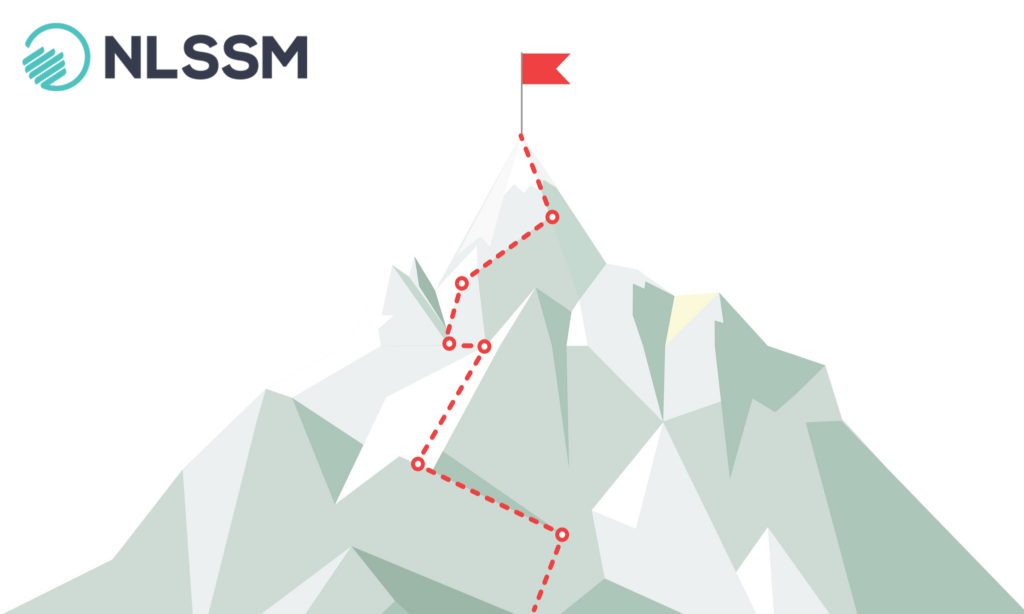
WHERE CAN A LEVEL 5 QUALIFICATION LEAD?
When you are qualified at the highest level, your options are unlimited! We have graduates that have gone on to be successful in a number of different careers. Some examples include the following, please note, this is not an exhaustive list!
- Join an established healthcare clinic
- Start your own independent clinic
- Work in professional sport, with teams and clubs at the highest level
- Complement your existing qualifications (such as osteopathy, physiology etc)
- Add to your current occupation in the health and wellness industry
- Expand upon your qualification and go on to specialise in oncology massage
- Become a specialist in other areas, such as shoulder, lower back pain or pregnancy massage

